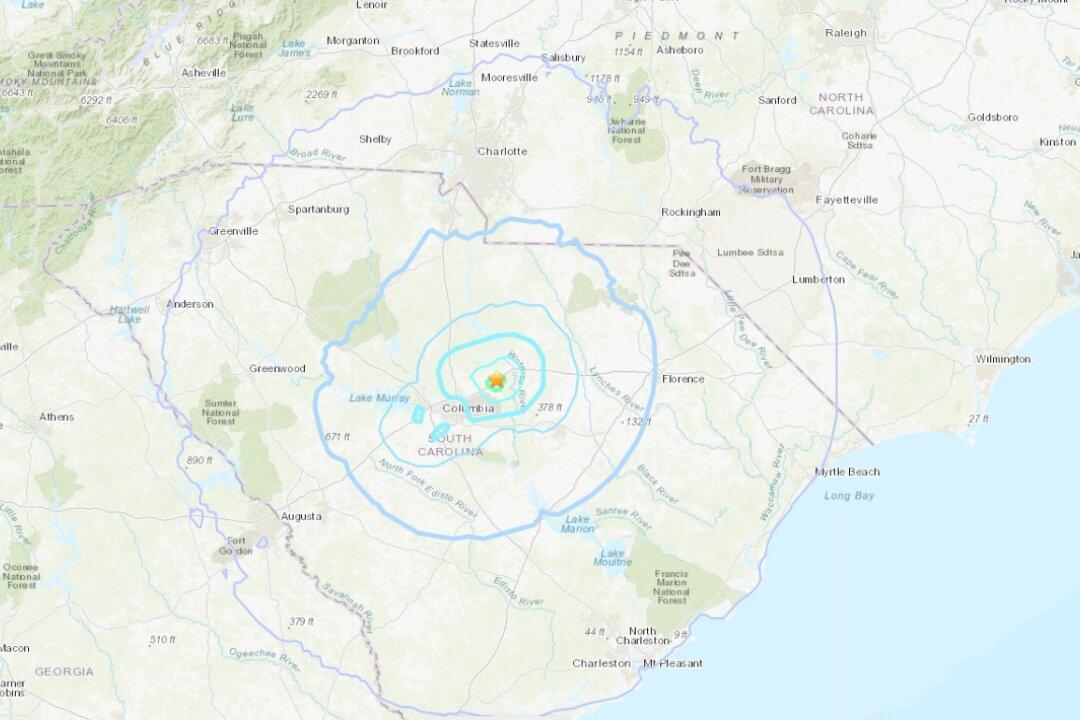COLUMBIA, S.C.—A relatively rare East Coast earthquake centered just northeast of South Carolina’s capital city jolted large numbers of state residents awake early Monday, rocking the Southern state at a preliminary 3.3 magnitude, authorities said.
There were no immediate reports of any damages or injuries, although more than 4,000 people contacted the U.S. Geological Survey to report what they felt.





